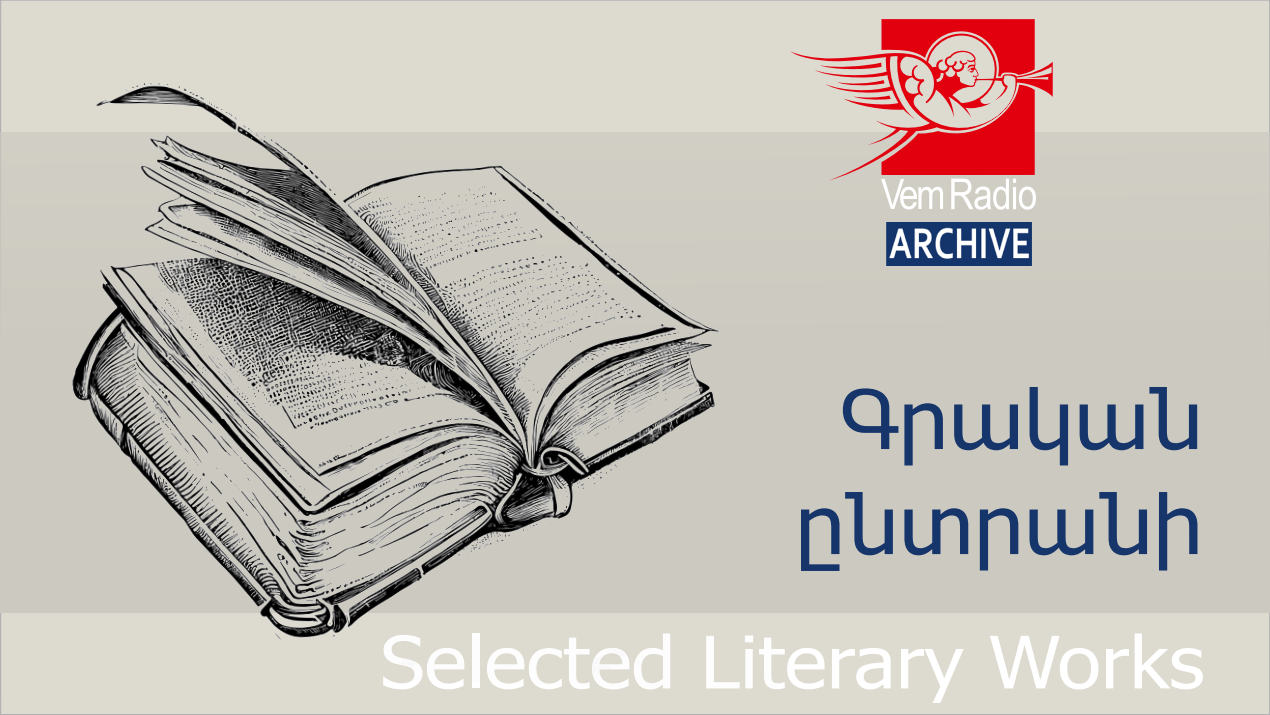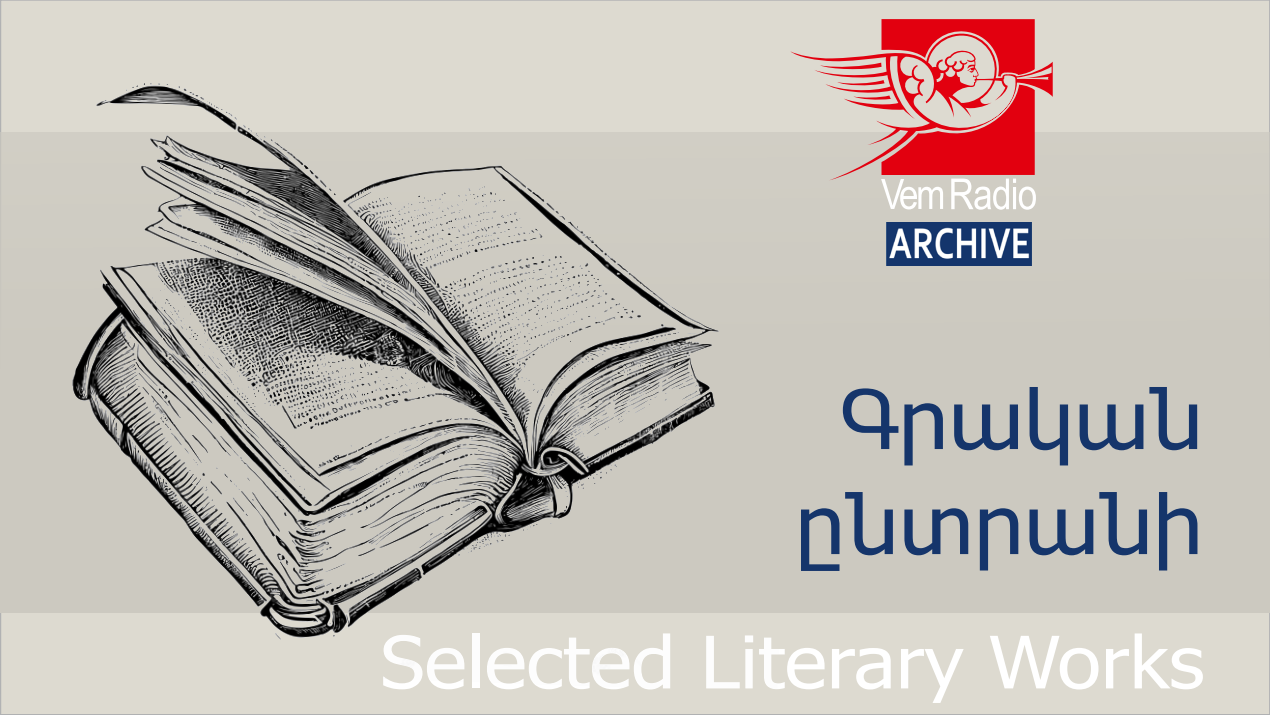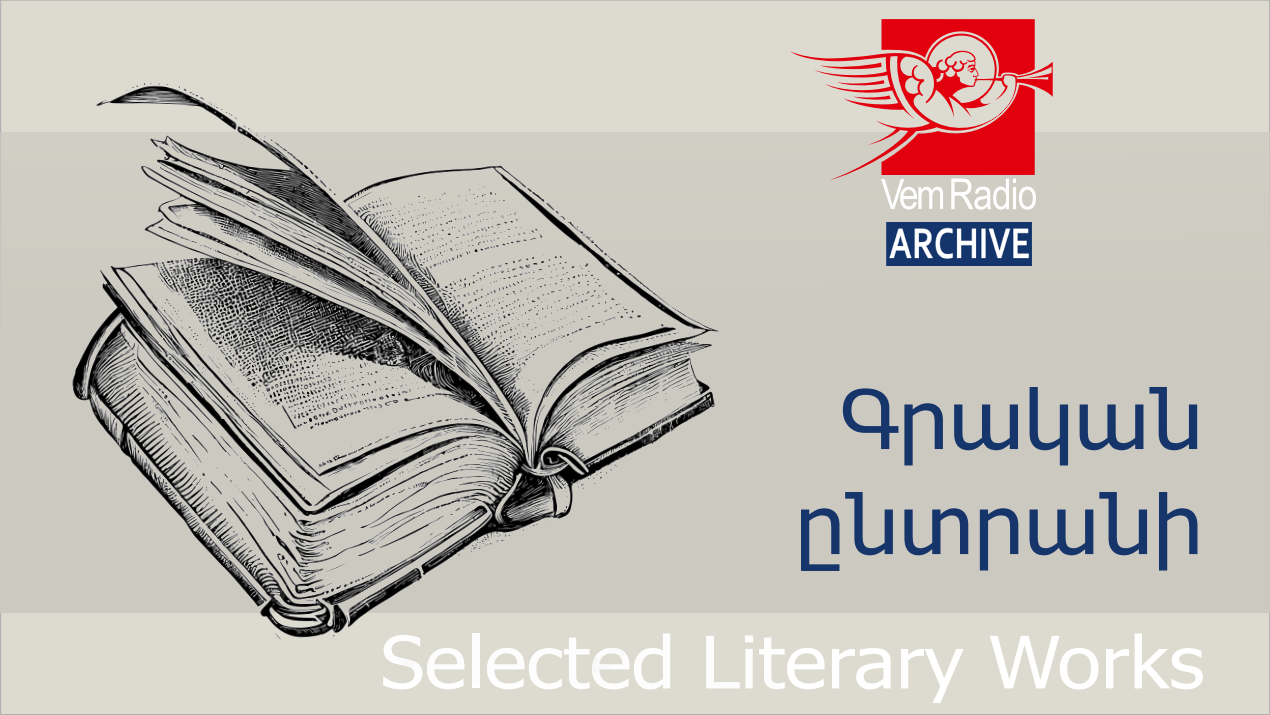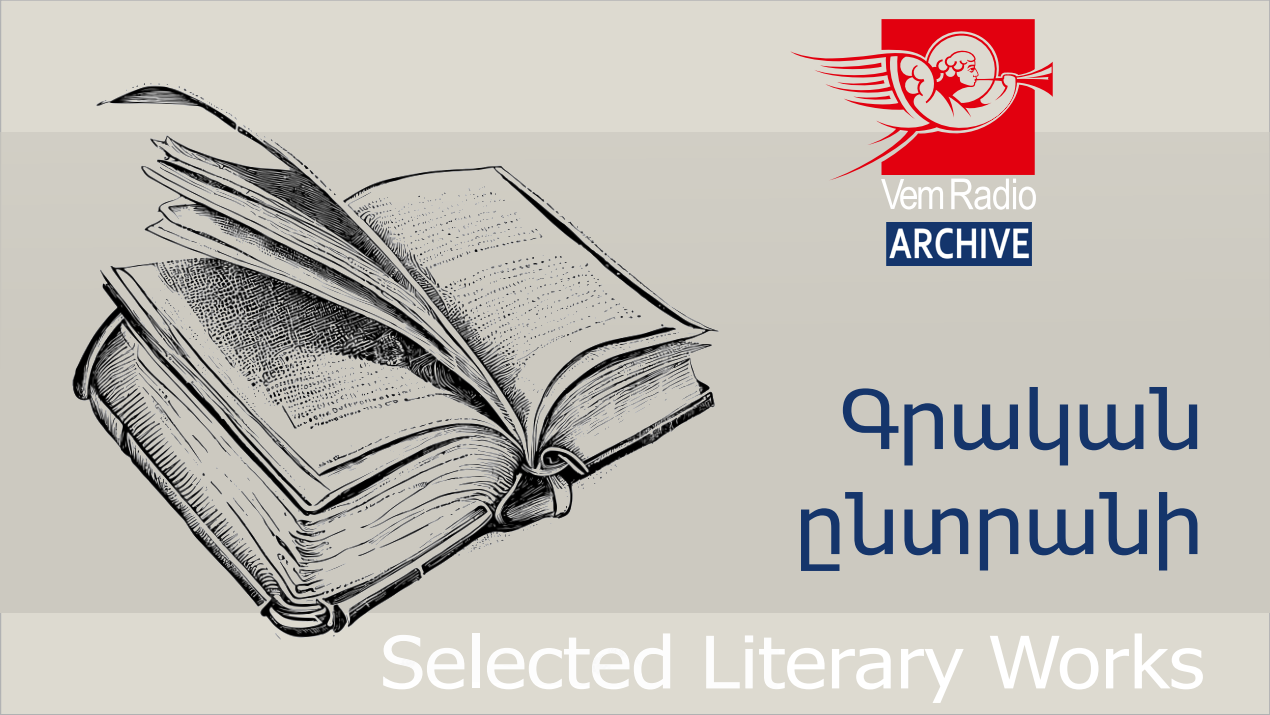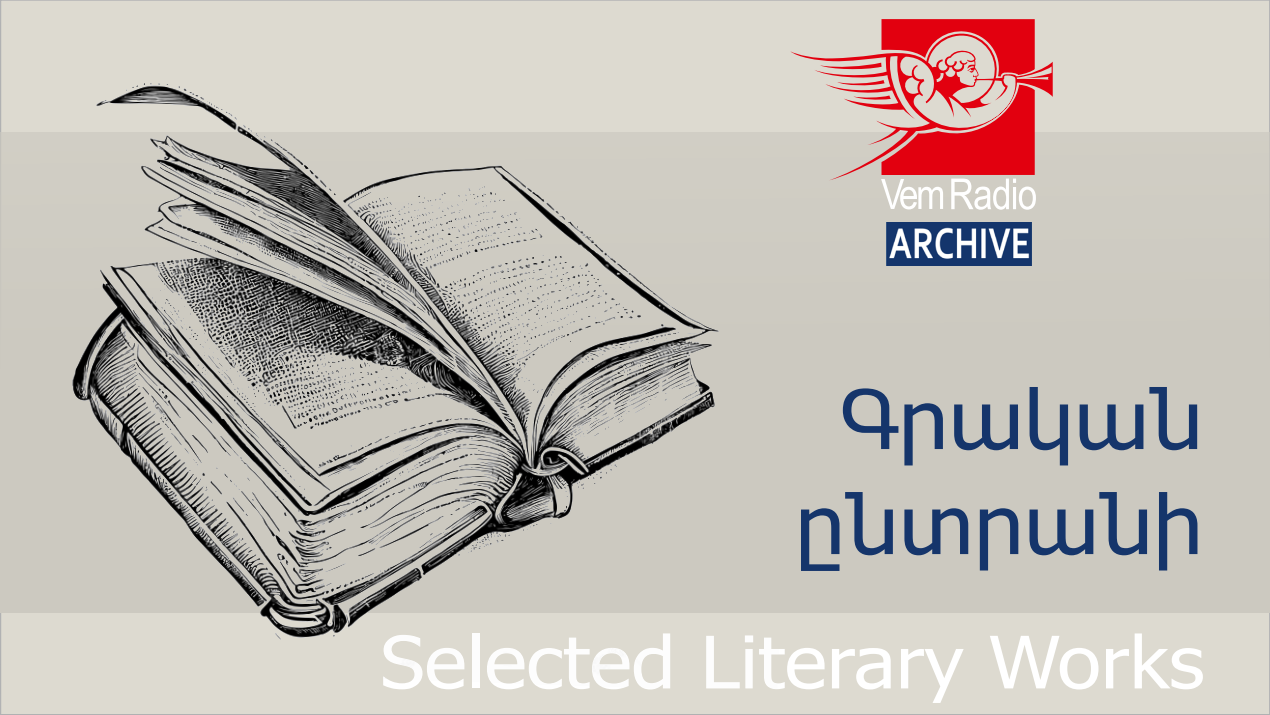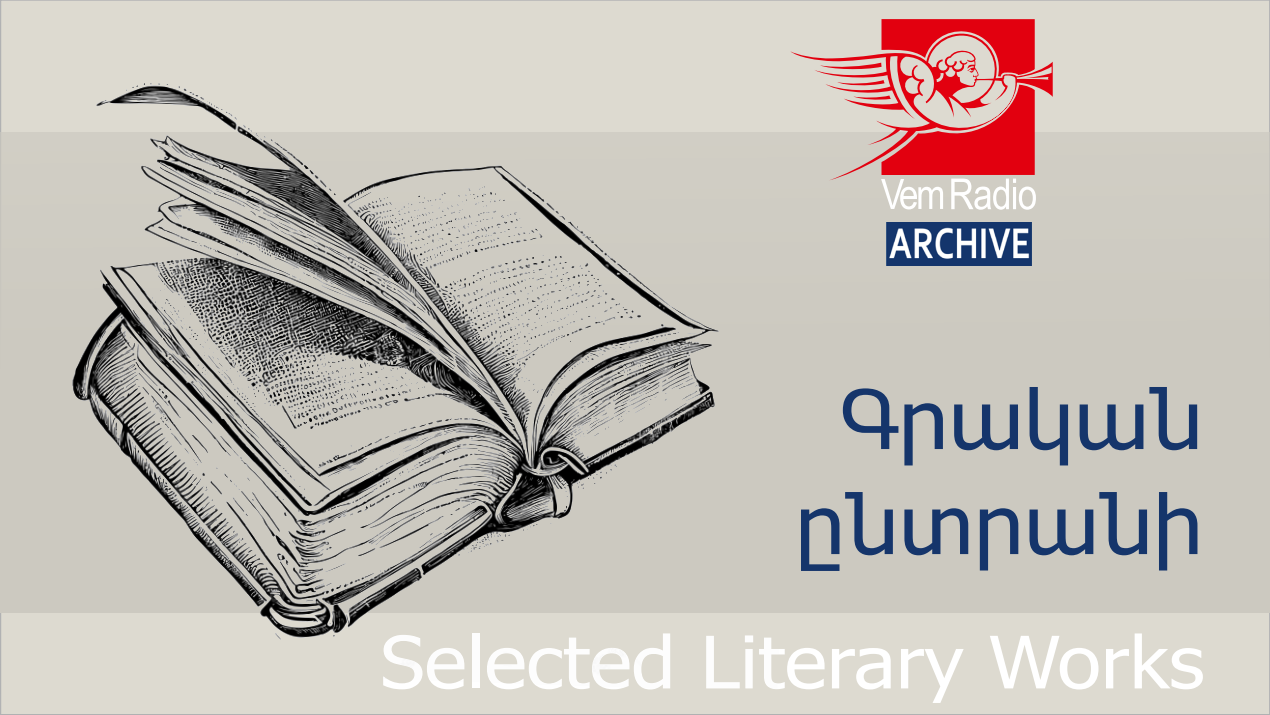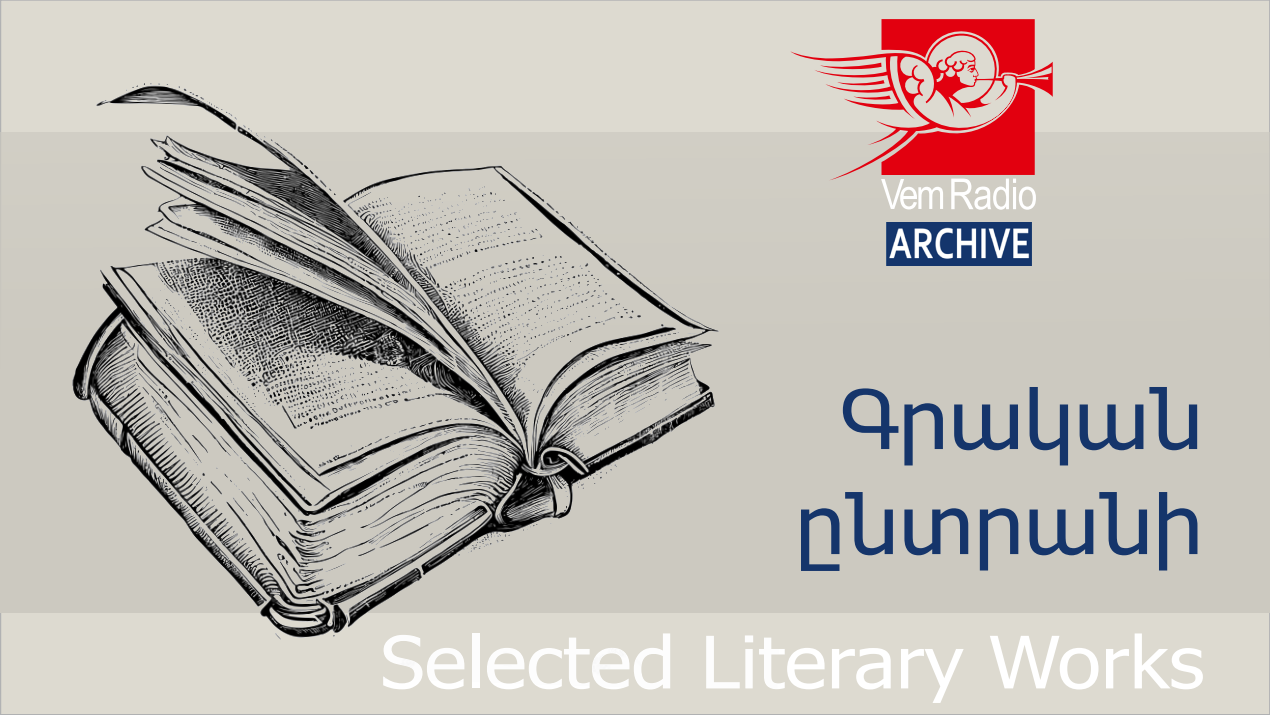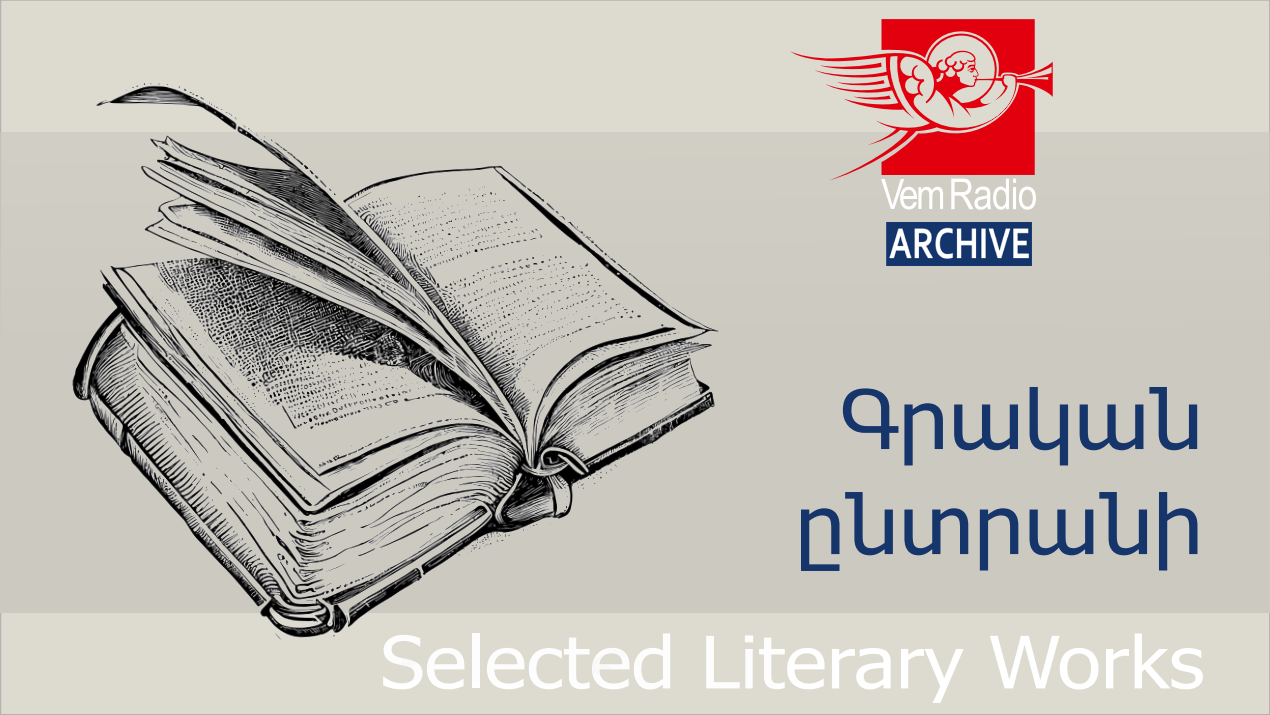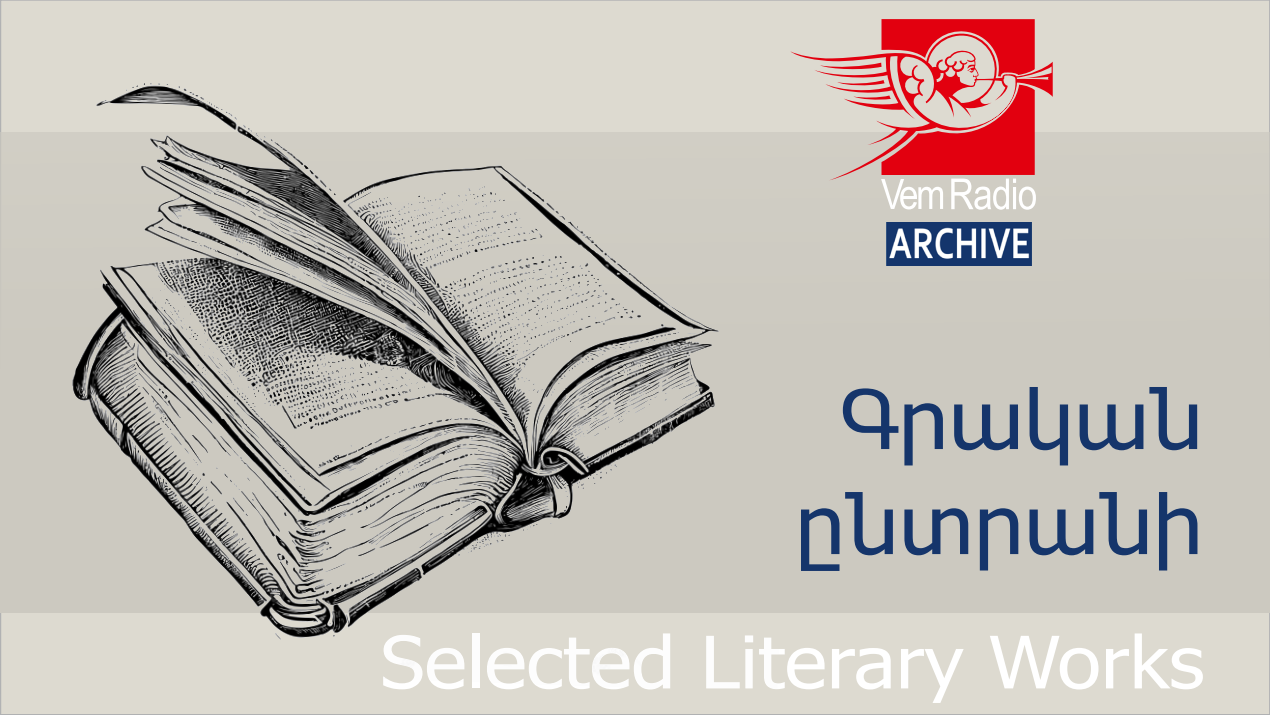
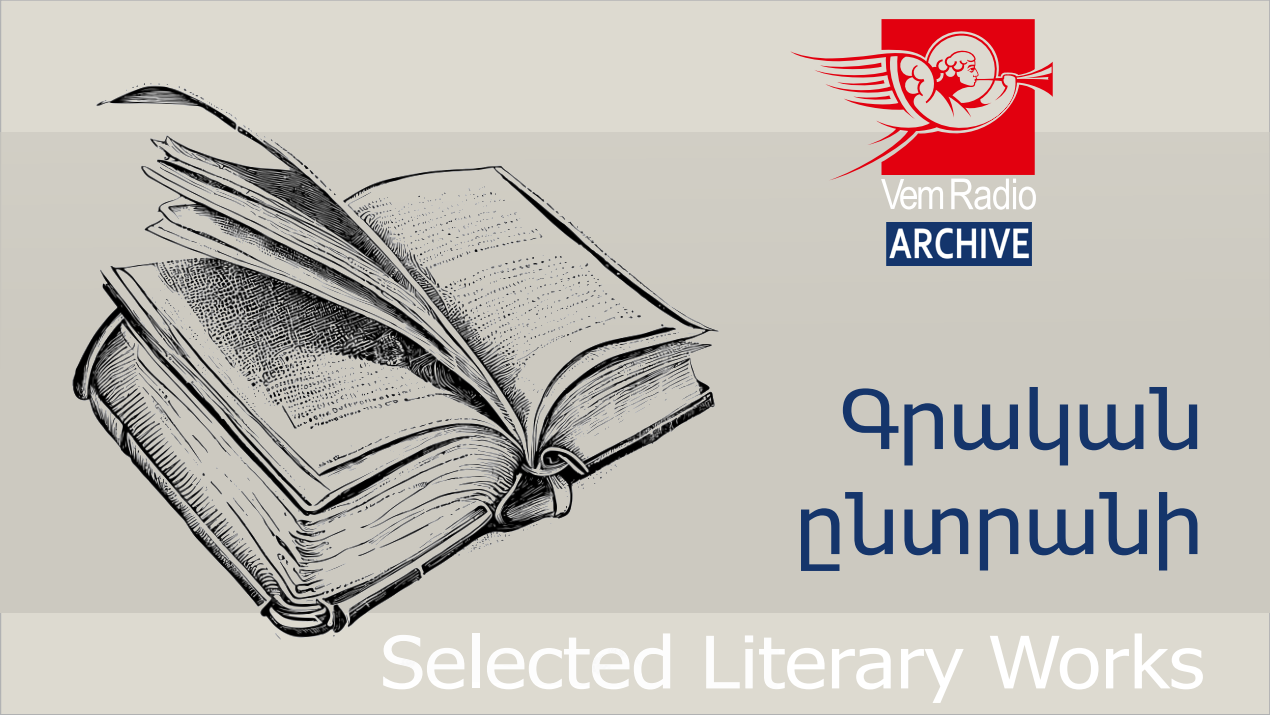
Selected Literary Works
Remarkable writers of the 20th century and their most famous works.
The literary paths taken by modern Armenian writers, and their literary achievements
- Host - Ani Pashayan

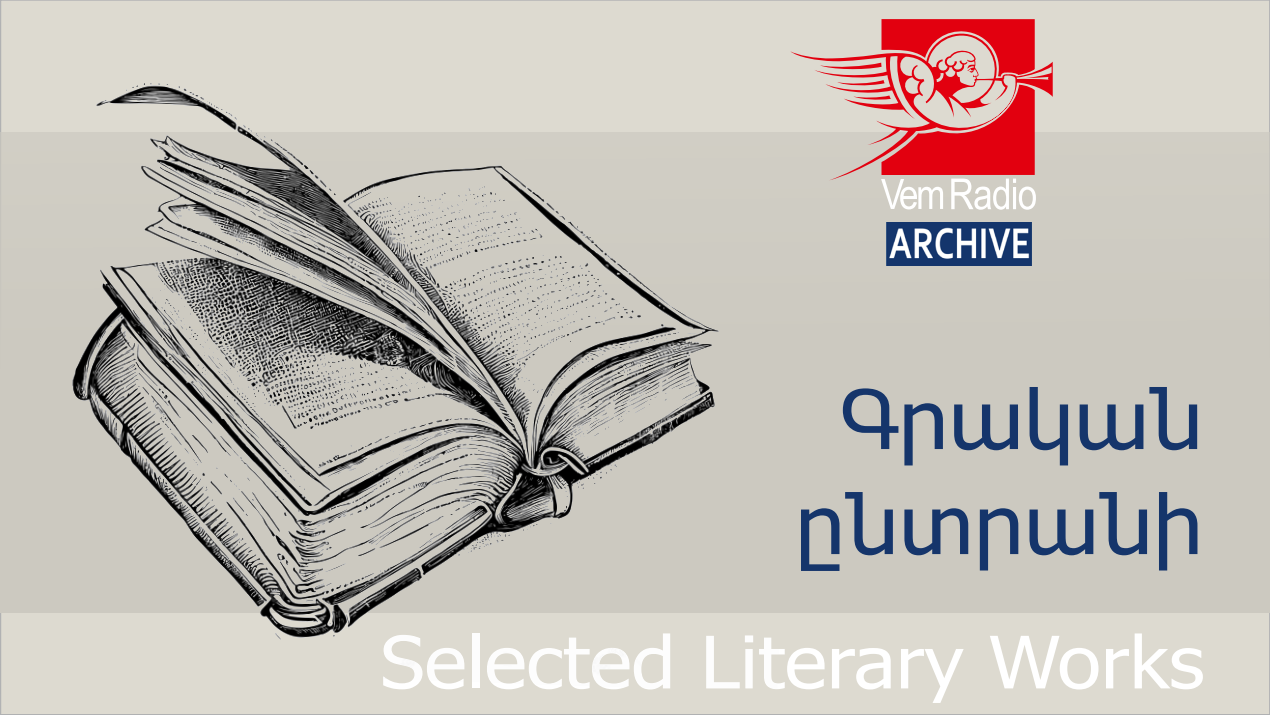
David Herbert Lawrence
The broadcast is dedicated to English novelist and essayist David Herbert Lawrence who is distinguished especially for his novelties in literature. His greatest desire was to see the human being free and natural. The novels "Sons and Lovers," "The Rainbow," and "Women in Love" brought him a great fame. But the greatest success was his last but one novel — "Lady Chatterley's Lover."

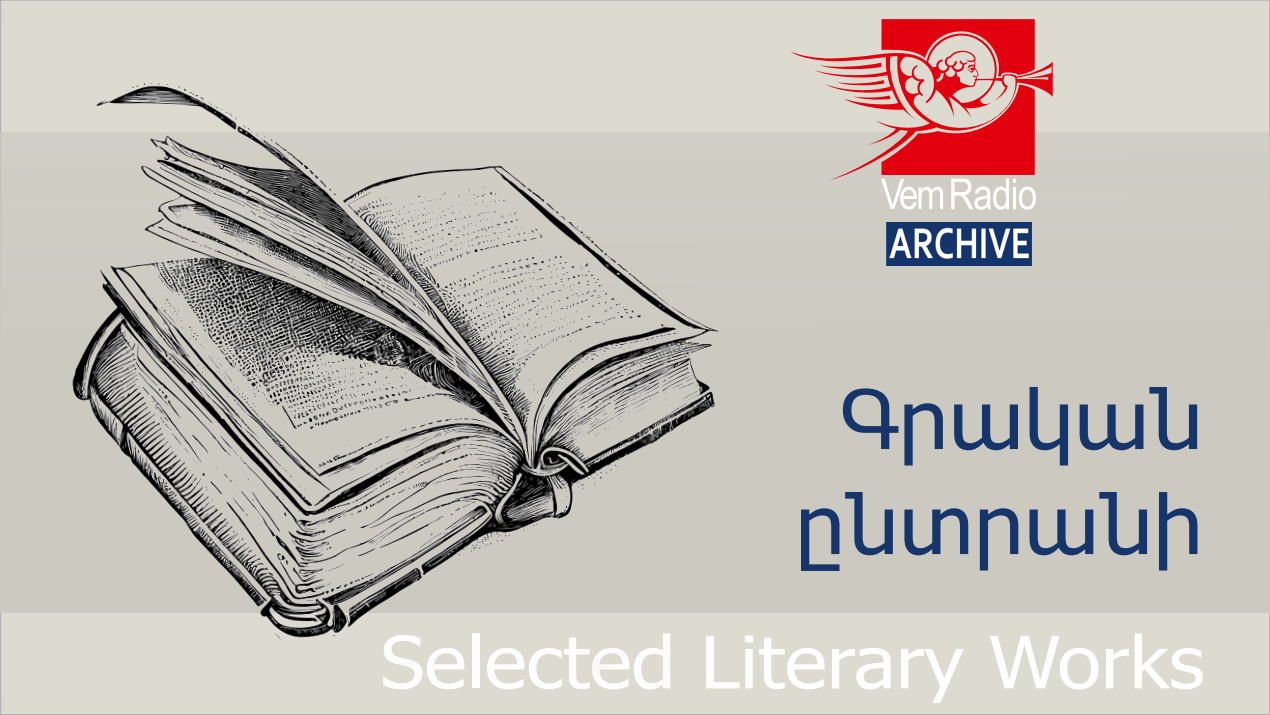
Thomas Eliot
The broadcast is dedicated to a bright representative of English modernism, poet, art critic, art historian, playwright and literary critic, Nobel Prize winner Thomas Eliot who created in a very hard period of the 20th century many valuable works: The Hollow Men, The Waste Land, The Ash Wednesday, Four Quartets, etc. Among his theoretic writings, notable are the works The Use of Poetry and the Use of Criticism, and On Poetry and Poets.

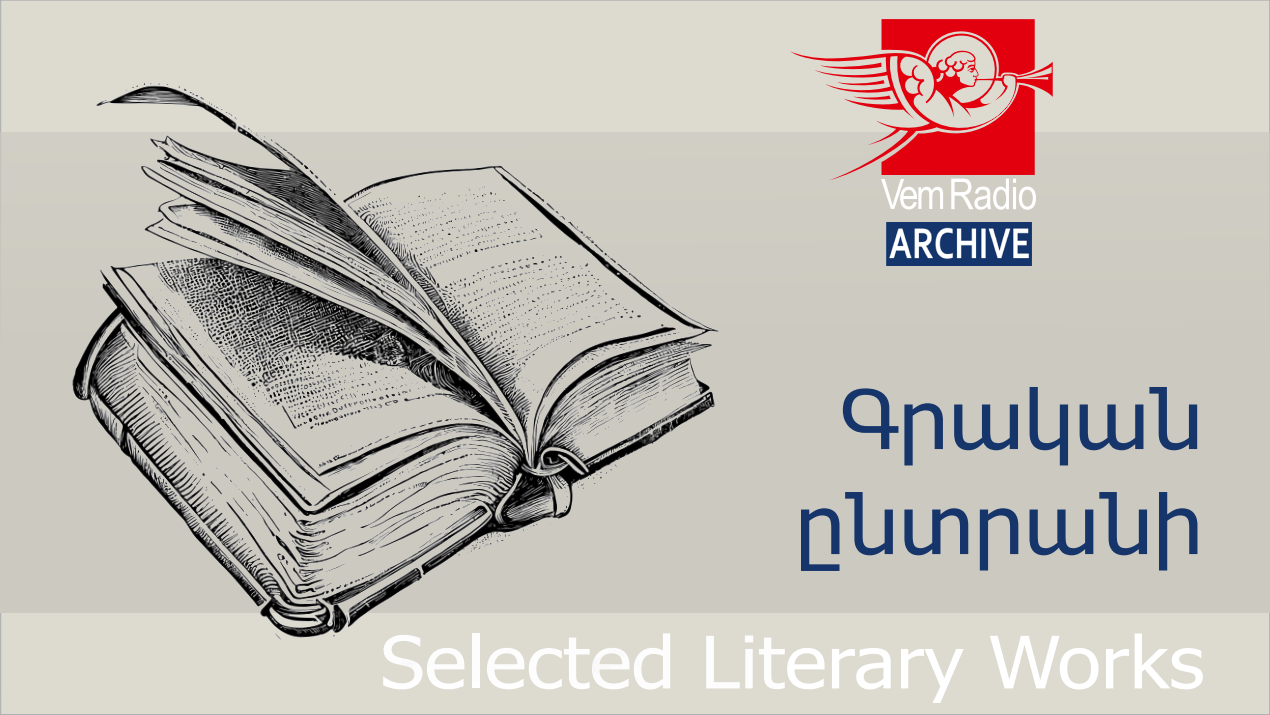
William Faulkner
The broadcast is dedicated to American great writer and Nobel Prize laureate William Faulkner, especially his novel The Sound and the Fury, written in 1929. This was the author's favorite novel, which he described as his “most splendid failure.” Through the fall of the Compson family, the author expresses a deep sympathy for human pain and tragedy.

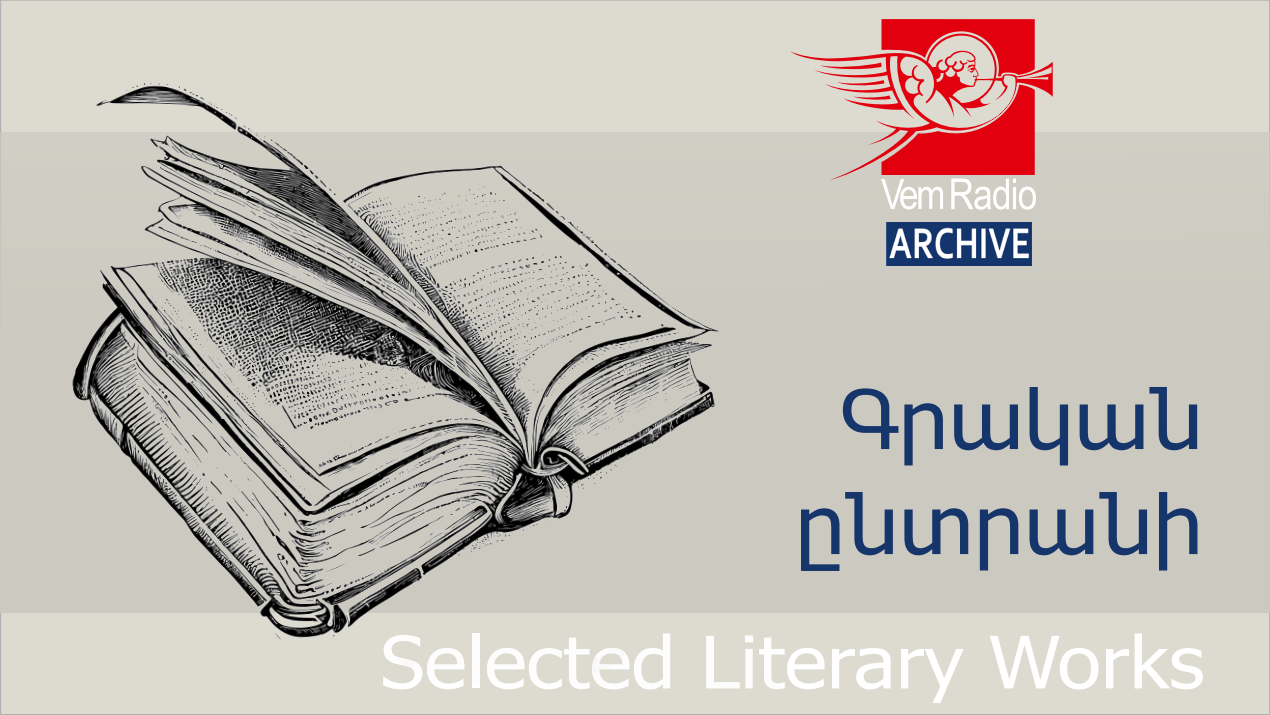
Federico García Lorca
The broadcast is dedicated to Spanish writer, poet, playwright Federico García Lorca who created permanent literary values during his very short life. Especially with his Gypsy Ballads he developed the Spanish national poetry, while with his dramaturgical innovations he prompted the development of Spanish national theater.

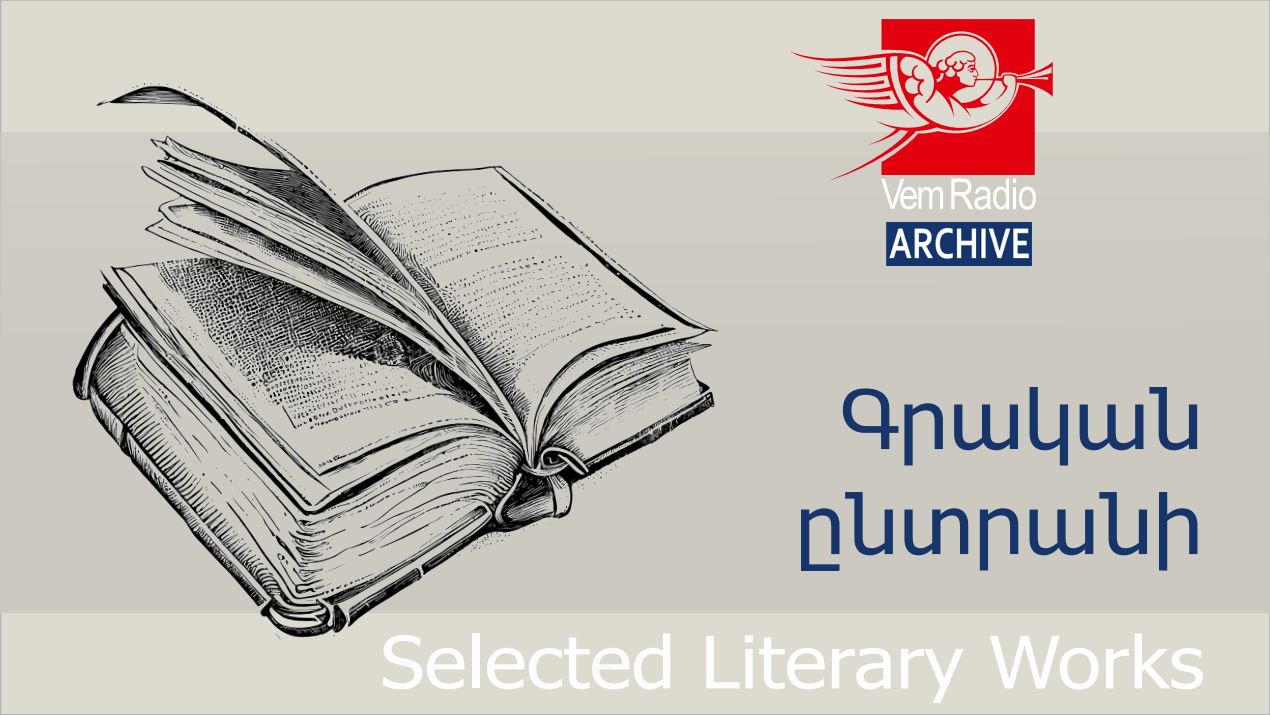
Conversation with Margarita Vardanyan
What does she as a pharmacist think about poetry, and how does she relate to literature and art? Her collection "A Handful of Stardust" presents modern reality and the woman in arts. In modern poetry, she especially distinguishes Avag Yepremyan, Eduard Harents...

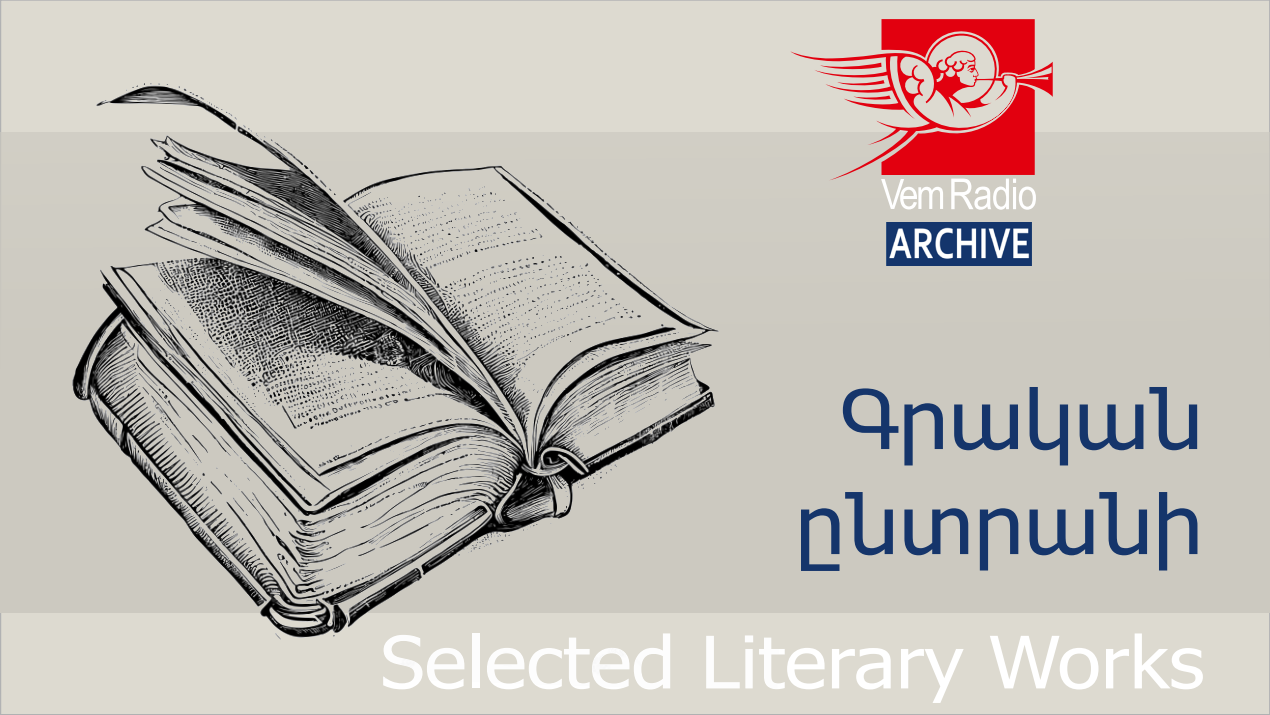
The Brazilian Prose of the 1920s-30s
The literature created in the 1920s-30s laid the groundwork for the rise of the modern Brazilian novel writing thanks to Lins do Rego, Queiroz, Ramos, Amado, and others. They realistically depicted the lives of laborers, their material and physical bereavements, the atmosphere in the plantations, and the riots of the exploited people...

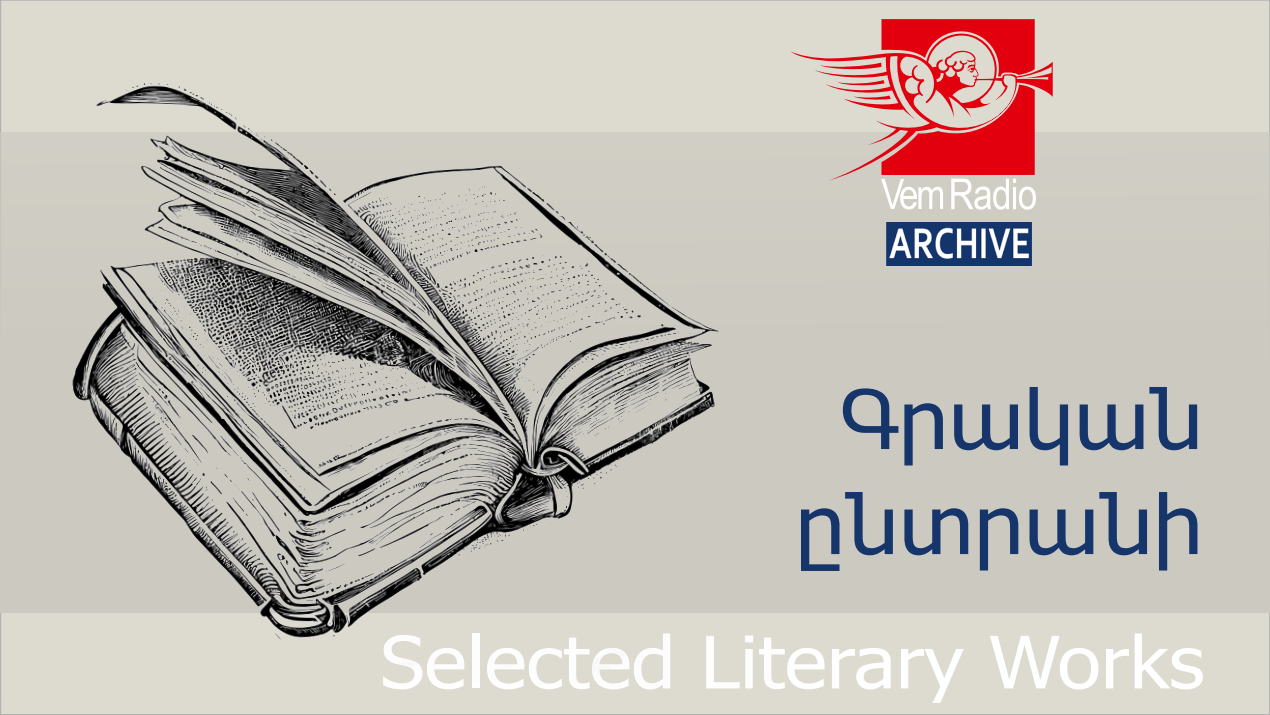
Conversation with Ashot Hovsepyan
The collection of prose writer and publicist Ashot Hovsepyan "Searching for the Last Year's Snow" fully reflects the 1990s, a hard period for Armenia that left a deep trace in the life of the country. The writer also predicted the vices of today's Armenian reality and brought a whole gallery of interesting characters to literature...

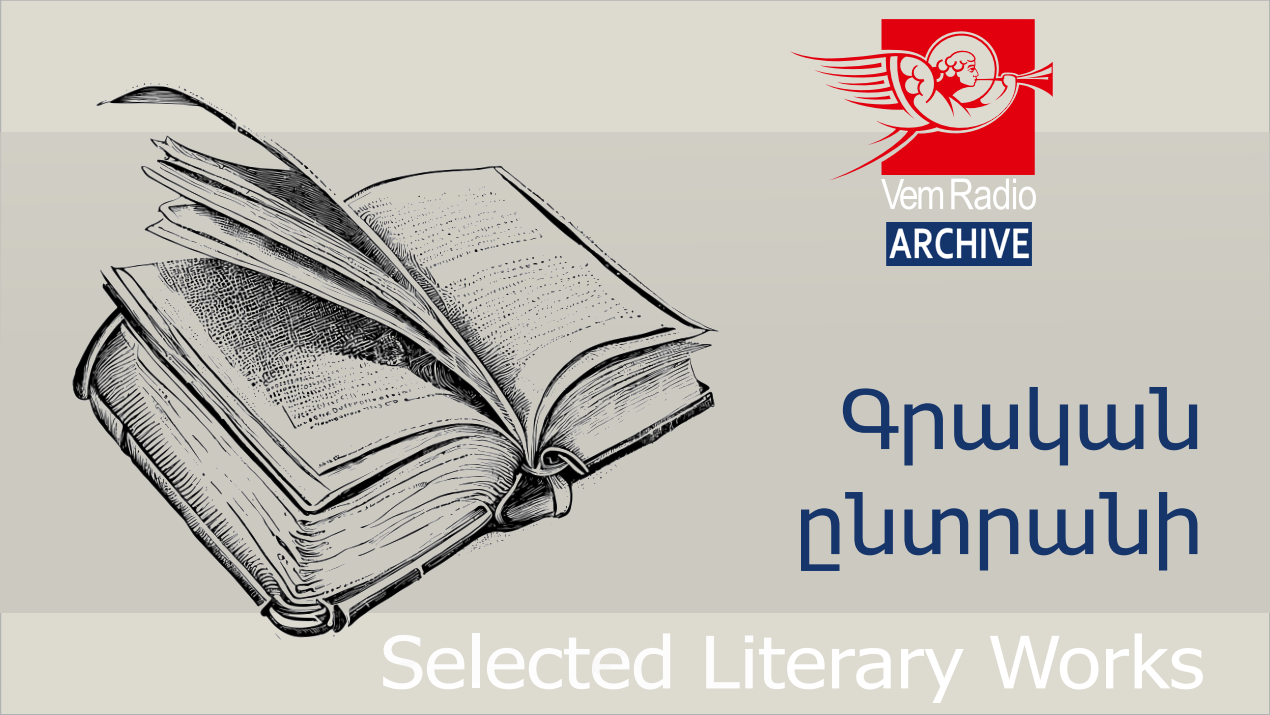
Conversation with Hasmik Papian
The great singer has a special attitude to the literary text, to literature. It was a great pleasure for her to read Kafka in German. She always has books by Hrant Matevosyan on her table. She also likes modern Armenian writers such as Alis Hovhannisyan, Hovhannes Yeranyan...

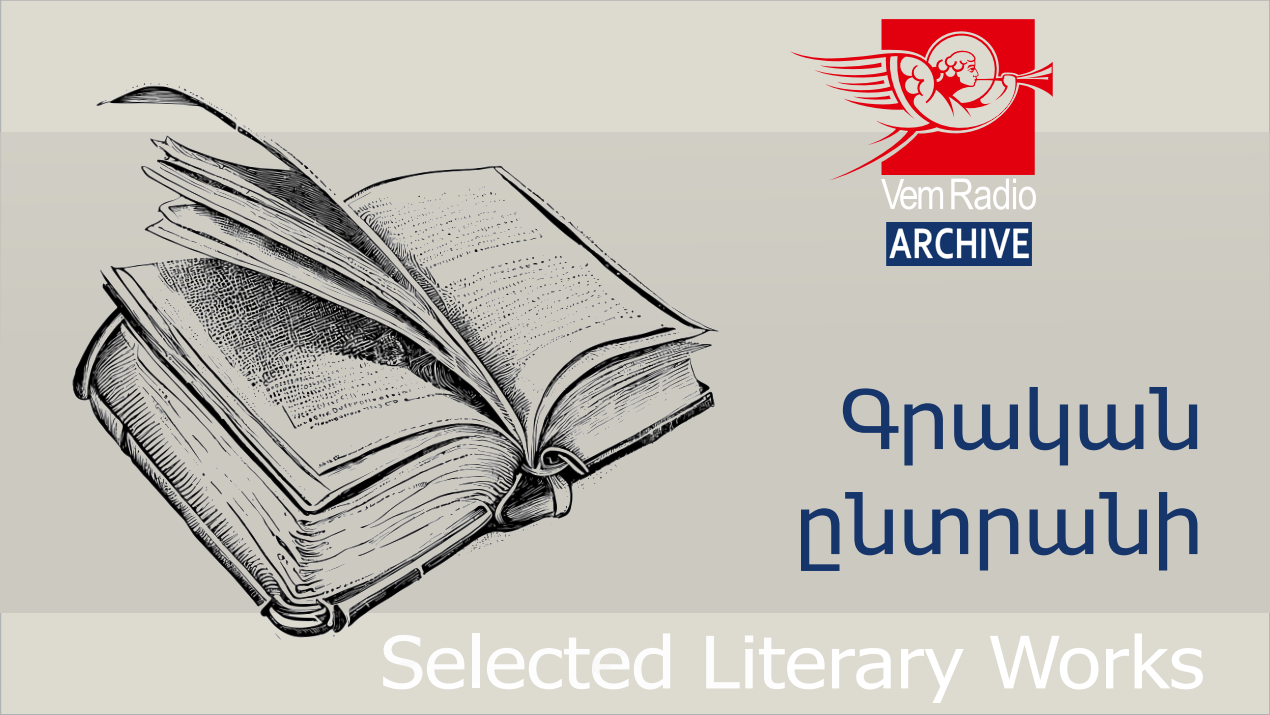
Heinrich Böll
This episode is dedicated to the German writer and Nobel Prize winner Heinrich Böll, whose novels enriched the German-language literature with new characters and ideas. His most famous novel, "Group Portrait with Lady," brought great fame to the writer thanks to its extraordinariness...

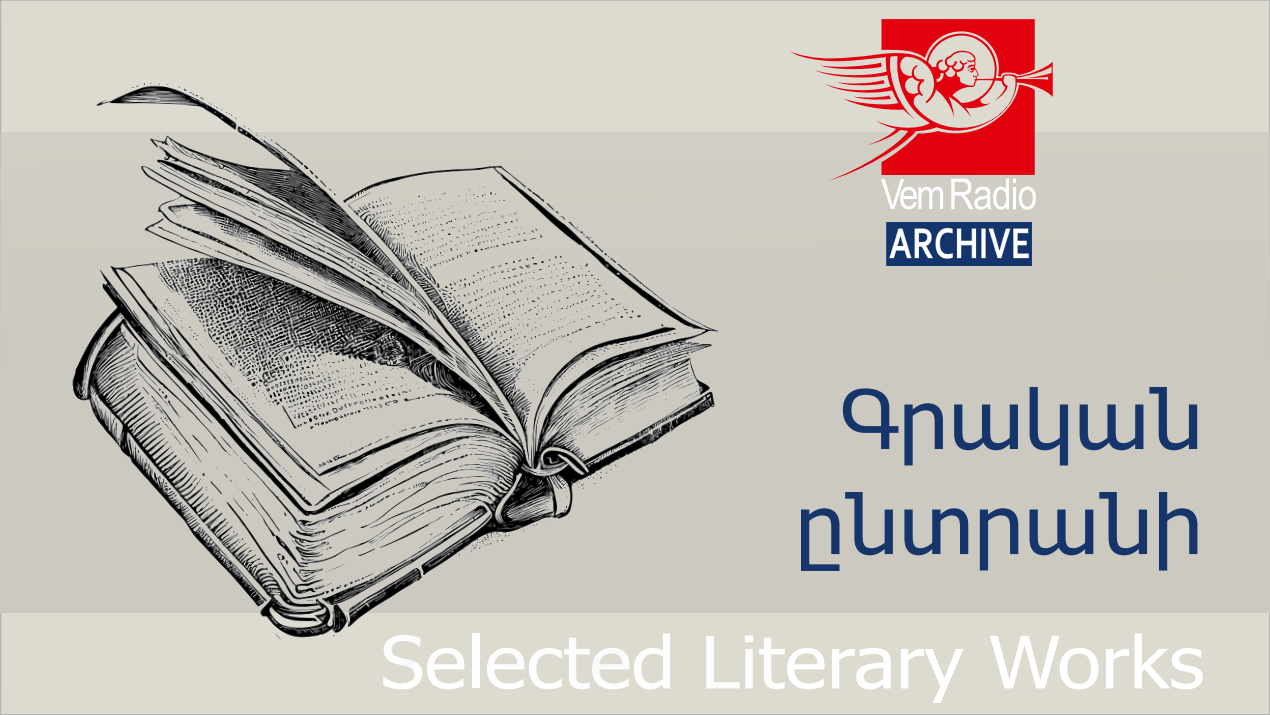
Conversation with Armenuhi Demirchyan
The famous poet Silva Kaputikyan's centenary is coming soon. Armenuhi Demirchyan, Candidate of Philology, literary critic, Director of the Silva Kaputikyan House-Museum, explains a number of issues related to the anniversary events, to certain episodes of Kaputikyan's life, to the interest in her literary heritage...

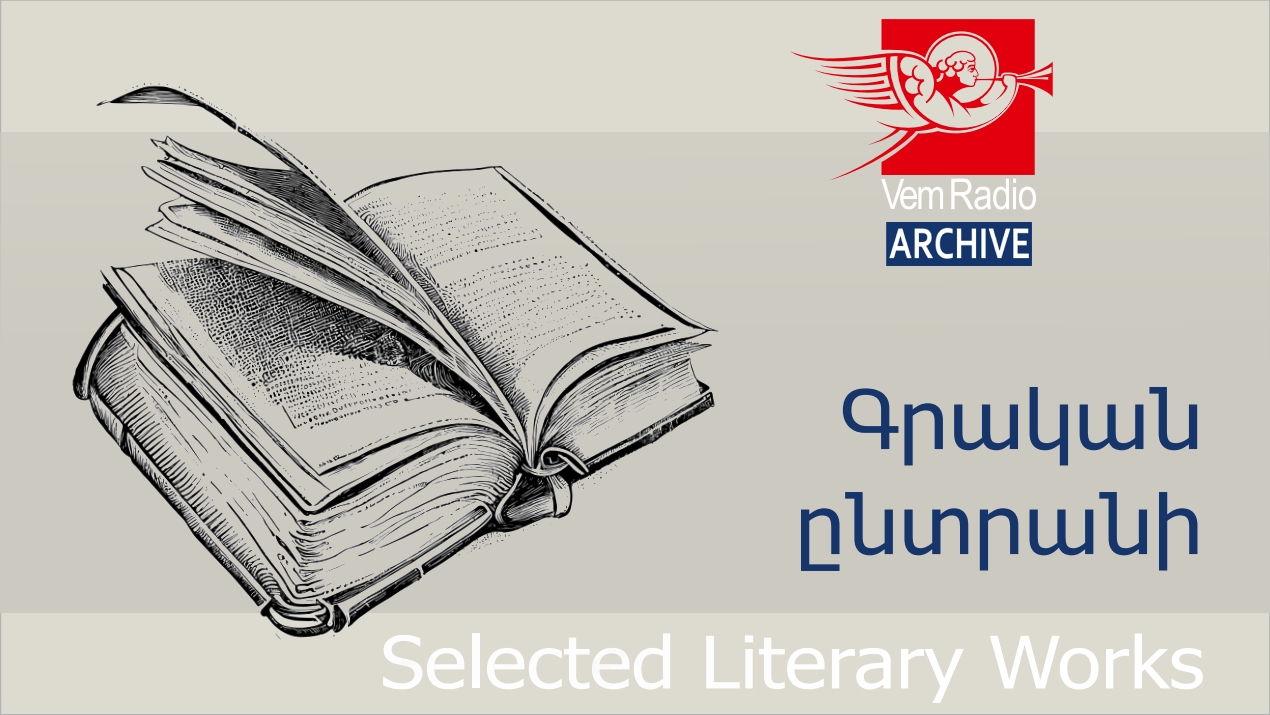
Ray Bradbury's "Dandelion Wine"
The famous American writer Ray Bradbury wrote his novel “Dandelion Wine” in 1957, remembering his childhood. He turned the summer of 1928 into an interesting canvas of time and space, portraying his childhood home, family, and nature through the image of dandelions and vivifying wine made with them...
